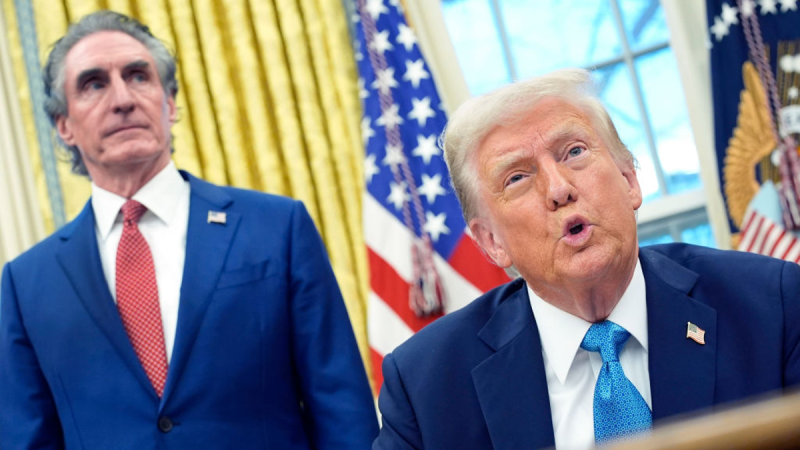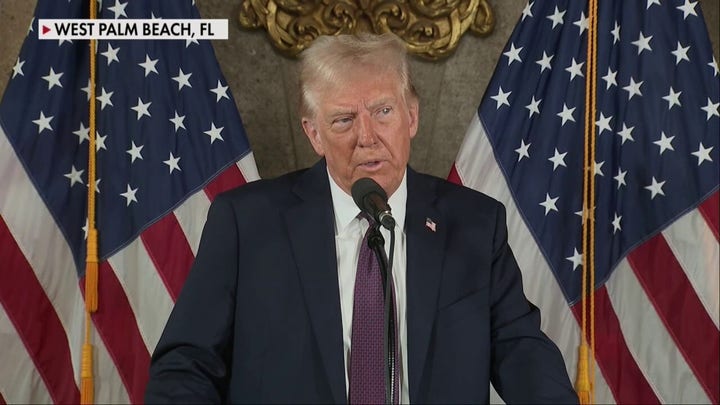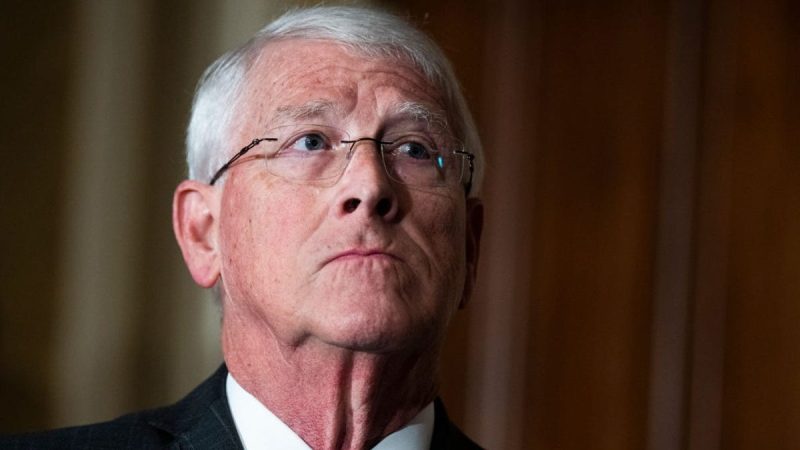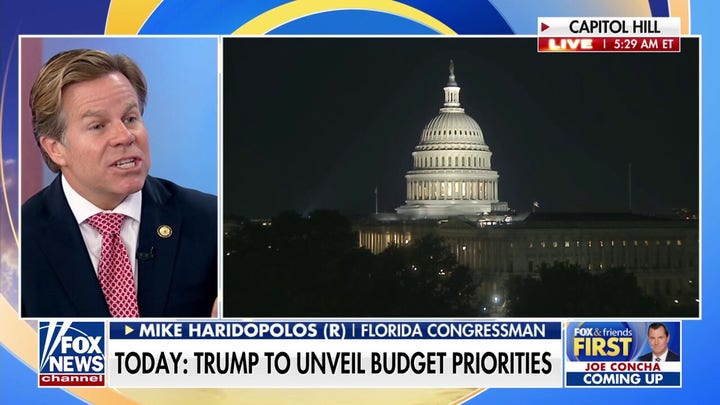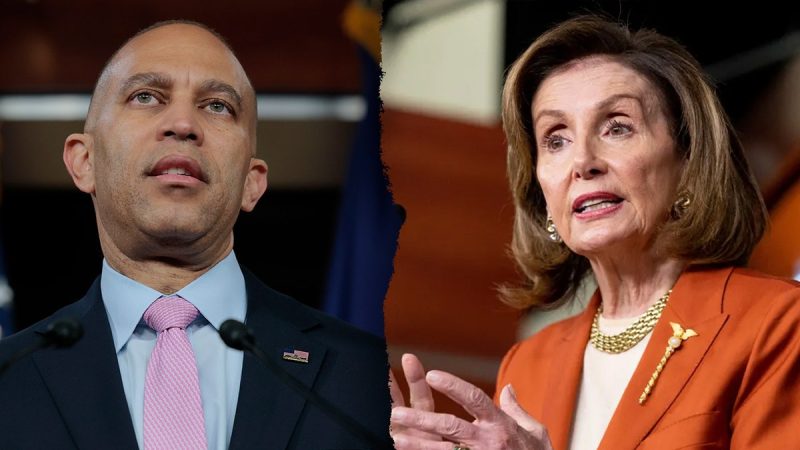
The same day that National Security Advisor Mike Waltz exited his job at the White House, President Donald Trump announced a new job offer for the former Florida congressman: United Nations ambassador.
But there are some hurdles Waltz must clear first before the New York job is his — including undergoing a Senate confirmation process amid scrutiny after the Atlantic magazine exposed a Signal group chat that his team had set up to discuss strikes against the Houthis in March.
And receiving full support from the slim Republican majority in the Senate isn’t guaranteed, and not all Republicans got on board backing Secretary of Defense Pete Hegseth. Vice President JD Vance ultimately cast the tie-breaking vote securing Hegseth’s nomination.
Democrats appear hungry to use Waltz’s nomination as a forum to air grievances against other foreign policy leaders in the Trump administration — particularly Hegseth.
Still, Waltz’snomination to represent the U.S. at the U.N. will likely attract support from establishment Republicans in the Senate who weren’t on board with Hegseth in the Pentagon, given that the ideological divide between these Republicans and Waltz is much smaller than it was in Hegseth’s case, according to one Florida GOP source.
‘He’s been able to thread the needle really, really well between traditional conservative foreign policy voices and the more populist America First policy voices,’ the Florida GOP source said of Waltz.
HEAT ON WALTZ
Waltz, who previously represented Florida’s 6th congressional district, is a retired Army National Guard colonel and former Green Beret who served four deployments to Afghanistan and earned four Bronze Stars — the fourth-highest military combat award, issued for heroic service against an armed enemy.
While Waltz and Hegseth both were embroiled in the Signal chat discussing strike plans against the Houthis, Hegseth has attracted more of the heat, at least publicly, stemming from the incident. Democrats have called for Hegseth’s resignation as a result of the chat, but staffers at the White House — including Waltz — have openly backed Hegseth and shut down reports that the administration is seeking his replacement.
But Waltz could get his turn attracting the ire of lawmakers as Democrats find an opportunity to openly grill him in front of the Senate, amid displeasure with Trump’s foreign policy and national security agenda.
‘The second hundred days of national security under President Trump will apparently be just as chaotic as the first hundred,’ Sen. Chris Coons, D-Del., said in a statement to Fox News Digital about Waltz’s departure from the White House.
‘President Trump’s consistent hirings, firings and upheaval sap morale from our warfighters and intelligence officers, degrade our military readiness, and leave us less prepared to respond to threats from our adversaries,’ Coons said. ‘American citizens at home and around the world are less safe because of President Trump’s non-existent national security strategy.’
Sen. Tammy Duckworth, D-Ill., also took aim at Waltz — although she labeled Hegseth the worst offender affiliated with ‘Signalgate.’
‘Took them long enough. Mike Waltz knowingly made an unclassified chain to discuss classified matters,’ Duckworth said in a Thursday X post ahead of Waltz’s U.N. ambassador nomination. ‘But of all the idiots in that chat, Hegseth is the biggest security risk of all—he leaked the info that put our troops in greater danger. Fire and investigate them all.’
In addition to the Signal chat, Waltz’s exit from the White House was tied to several other issues. For example, Axios reports that Waltz treated White House Chief of Staff Susie Wiles like ‘staff,’ and his disrespect rubbed her the wrong way.
‘He treated her like staff and didn’t realize he’s the staff, she’s the embodiment of the president,’ a White House official told Axios. ‘Susie is a deeply loyal person and the disrespect was made all the worse because it was disloyal.’
Waltz reportedly discussed different roles he could take on following his stint at the White House with Wiles, according to CBS News. Waltz was reportedly offered jobs, including the ambassador to Saudi Arabia, but ultimately settled on U.N. ambassador.
A spokesperson for the National Security Council did not immediately respond to a request for comment from Fox News Digital.
NEXT STEPS
With Waltz out as national security advisor, Secretary of State Marco Rubio will temporarily step into that role.
While Trump originally nominated Rep. Elise Stefanik, R-N.Y., to represent the U.S. at the U.N., he rescinded her nomination in March, citing that the House could not afford to lose another Republican seat.
Stefanik’s nomination lagged in the Senate in comparison to other U.N. ambassador nominees, including Trump’s first U.N. ambassador and former South Carolina Gov. Nikki Haley. The Senate confirmed Haley in January, just after Trump’s first inauguration.
While the exact timeline for a potential confirmation vote in the Senate is unclear, the first hurdle that Waltz must clear is a confirmation vote out of the Senate Foreign Relations Committee. Although it is uncertain when the Senate Foreign Relations Committee will schedule the nomination hearing for Waltz and the subsequent vote, the committee said his nomination is a ‘priority.’
‘The committee has been working at a historically fast pace and this nomination will be a priority moving forward,’ a GOP staffer on the Senate Foreign Relations Committee told Fox News Digital.
The 80th session of the U.N. General Assembly is scheduled for September 9, so there are a few months for Waltz’s confirmation to play out, the Florida GOP source said. That means that Waltz could take a few months off, start the confirmation process in June or July and wrap up his confirmation by September at the latest, the source said.
‘He’s got plenty of time. So, this isn’t a looming fight that’s going to happen next week,’ the Florida GOP source said. ‘This is going to play out probably in June or July, which by then, people are going to forget about the Signalgate stuff, or at the very, very least, they’re going to forget about Mike Waltz’s role in it.’
But there are a few Republican wildcards in the Senate who have voted against several of Trump’s nominees, most prominently Sen. Mitch McConnell, R-Ky., who voted against Hegseth, Secretary of Health and Human Services Robert F. Kennedy Jr., Director of National Intelligence Tulsi Gabbard and Secretary of Labor Lori Chavez-DeRemer.
A spokesperson for McConnell did not respond to a request for comment from Fox News Digital.
Other Republicans who have opposed Trump nominees include Sens. Lisa Murkowski of Alaska, Susan Collins of Maine, both of whomvoted against Hegseth, as well as Sens. Ted Budd of North Carolina and Rand Paul of Kentucky, both of whom voted against Chavez-DeRemer.
Aside from former Rep. Matt Gaetz, R-Fla., whom Trump initially nominated to serve as attorney general, Trump’s entire cabinet has been approved. Gaetz withdrew his nomination amid a House Ethics Committee investigation into sexual misconduct and drug-use allegations.
Despite opposition from Democrats, and possibly a few Republicans, it appears unlikely that any fire that Waltz will face will sink his nomination.
‘The reality of it is, the president can lose three votes in the Senate, and the vice president can still vote to break a tie,’ the Florida GOP source said. ‘There’s no way he’s probably going to lose three votes.’
Meanwhile, other Republicans have openly stated they endorse Waltz’s nomination, including Senate Foreign Relations Chairman John Risch, R-Idaho, who lauded Trump’s decision to nominate Waltz for the role.
‘Great choices. America is safer and stronger under President Trump and his national security team,’ Risch said in a Thursday X post. ‘I thank Mike Waltz for his service as NSA, and look forward to taking up his nomination in our committee.’
Sen. Lindsey Graham, R-S.C., also posted on X on Friday that Waltz would be confirmed ‘for sure.’
Vance also voiced support for Waltz and billed the nomination as a ‘promotion,’ pushing back on any suggestions that Waltz’s removal amounted to a firing.
‘Donald Trump has fired a lot of people,’ Vance said in an interview with Fox News’ Bret Baier Thursday. ‘He doesn’t give them Senate-confirmed appointments afterward. What he thinks is that Mike Waltz is going to better serve the administration, most importantly, the American people in that role.’
Fox News’ Charles Creitz contributed to this report.
This post appeared first on FOX NEWS












